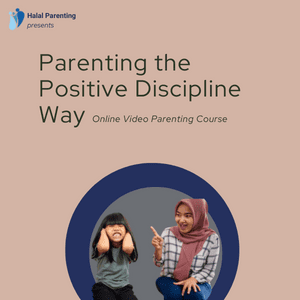Toxic Parenting: Yelling and Screaming

No-one ever plans to become a parent who is always yelling and screaming at their children in order to get them to cooperate. When we get to this place, it’s because we’ve tried everything else, and it works – at least in the short term.
Atiyyah reported: The Messenger of Allah (pbuh), said, “Verily, anger comes from Shaytan and shaytan was created from fire. Fire is extinguished with water, so if you become angry then perform ablution with water.”
[Sunan Abi Dawud 4784]
Many parents feel that by yelling and screaming, their children are more likely to listen to them. Have you ever felt that way? If RasulAllah (pbuh) never needed to yell at children in order to get them to cooperate, then that tells us that there is something better that we can do.
Shouting at children is a form of emotional abuse that has been proven to be ineffective, emotionally distressing and harmful for your own health as well as that of your child. It is possible to communicate effectively with your children without resorting to yelling – it’s not the volume of your voice that ensures you are heard by your children – rather, it’s the way that you communicate.
How can you minimize all the yelling?
🌱 It is difficult to never shout, so try to be realistic about your situation. Take deep breaths and find a way to calm yourself before trying to discuss an upsetting issue with your child.
🌱 Understand that family life is stressful and emotional. Find ways to let off steam in a healthy way so you approach your family being the best version of you.
🌱 Understand your triggers – figure out what makes you lose your temper and work to address that.
🌱 Shift your focus to counting the number of times that you praise your child versus how many times you lose your temper. You’ll be surprised to see the difference it makes.
What happens to YOU when you’re regularly yelling and screaming?
⚡️YELLING AFFECTS YOUR HEART HEALTH
Nothing damages the physical structure of the heart more than anger. In the 2 hours following an angry outburst, the risk for heart attack doubles.
⚡️INCREASED RISK FOR STROKE
If you’re prone to lashing out, beware. One study found there was a three times higher risk of having a stroke from bleeding or a blood clot to the brain during the two hours after an angry outburst. For people with an aneurysm in one of the brain’s arteries, there was a six times higher risk of rupturing this aneurysm following an angry outburst.
⚡️WEAKENED IMMUNE SYSTEM
If you’re a parent who finds themselves yelling a lot, you just might find yourself feeling sick more often. In one study, Harvard University scientists found that in healthy people, simply recalling an angry experience from their past caused a six-hour dip in levels of the antibody immunoglobulin A, the cells’ first line of defense against infection.
⚡️INCREASED ANXIETY
If you’re a worrier, it’s important to note that anxiety and anger can go hand-in-hand. In a 2012 study, researchers found that anger can exacerbate symptoms of generalized anxiety disorder (GAD), a condition characterized by an excessive and uncontrollable worry that interferes with a person’s daily life.
⚡️DEPRESSION
Numerous studies have linked depression with aggression and angry outbursts, especially in men.
⚡️DAMAGE TO LUNGS
Not a smoker? You still could be hurting your lungs if you’re a perpetually angry, hostile person. A Harvard University study showed that men with high hostility ratings had significantly worse lung capacity, which increased their risk of respiratory problems. The researchers theorized that an uptick in stress hormones, which are associated with feelings of anger, creates inflammation in the airways.
⚡️SHORTENED LIFE
Stress is very tightly linked to general health, and anger can shorten your lifespan. A University of Michigan study done over a 17-year period found that couples who hold in their anger have a shorter life span than those who readily say when they’re mad. The old adage that ” happy people live longer” may be true.
What happens to YOUR CHILD when they are yelled and screamed at?
What happens to your children when there is persistent yelling?
💧SELF-CONFIDENCE
A child who grows up in a home where they have a parent who yells and screams at them on a daily basis will tend to have low self-confidence and self-esteem. They will perceive themselves as insignificant and unworthy, which takes a toll on their academic and social development.
💧AGGRESSION
By the time a child reaches the age of 4 or 5 years old, if they have been raised in an environment where their parent regularly yells and screams at them, they are more likely to display aggressive behaviors themselves – towards you, their siblings, family, and classmates.
💧FEAR
Many kids who are constantly yelled at become fearful and timid, which results in an inability to deal with conflict or develop friendships.
💧CONCENTRATION PROBLEMS
When a child is yelled at on a regular basis, he learns to ‘tune it out’ as a self-preserving mechanism. This effort to temporarily defend themselves against a verbal assault unfortunately results in a lack of concentration in other areas of their life.
How can you STOP yelling and screaming at your kids?
Nobody every gets everything right all the time – we all mess up. When you falter:
🍁Explain to your children that sometimes we do get angry and you are sorry for shouting at them. Tell them you need to find a different and better way to let off some steam.
🍁Be sure to tell your kids that you love them but are upset at their choices and behavior. Making this distinction helps your child understand that they too have the power to change for the better.
🍁If you are upset at something else, try not to take out your frustrations on your children because they are an easy target. Resolve your issues away from your children.
🍁Get down to your child’s level, make eye contact and talk to them in a calm and concise way.
🍁Hug your children – kiss them and hold them. Tell them that you see their beautiful qualities and love them for it.
🍁Let your kids know that we all make mistakes, and Allah didn’t make us to be perfect so He expects us to mess up sometimes. What’s important is to learn from these mistakes, and work hard to improve ourselves so that we become better people and Allah swt forgives and rewards us Insh’Allah.
🍁Have a positive mind and a grateful heart. Children are an amanah from Allah swt, and how we treat, raise and educate them will be counted for us or against us on the day of Qiyaamah, so tread carefully.


